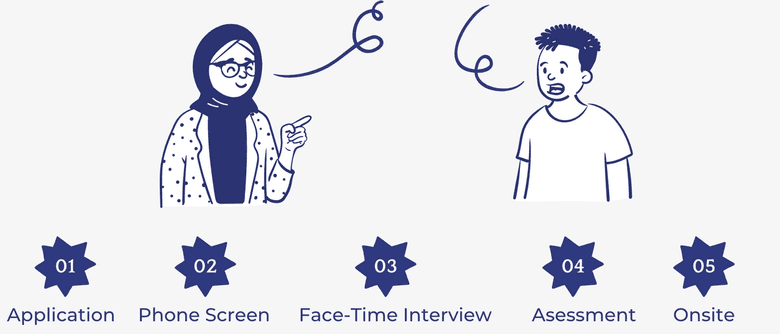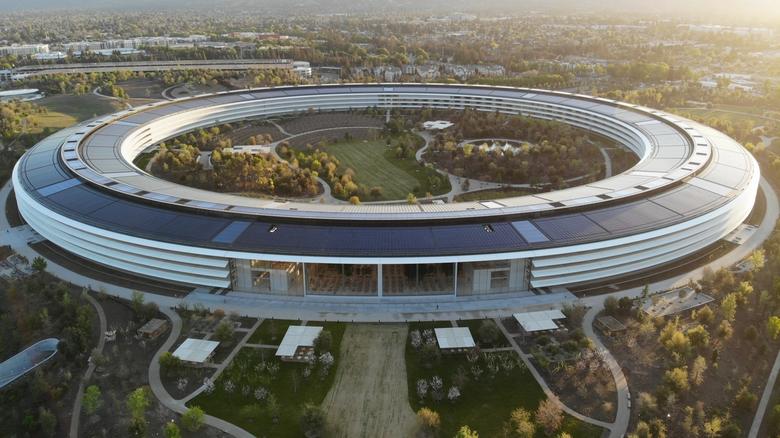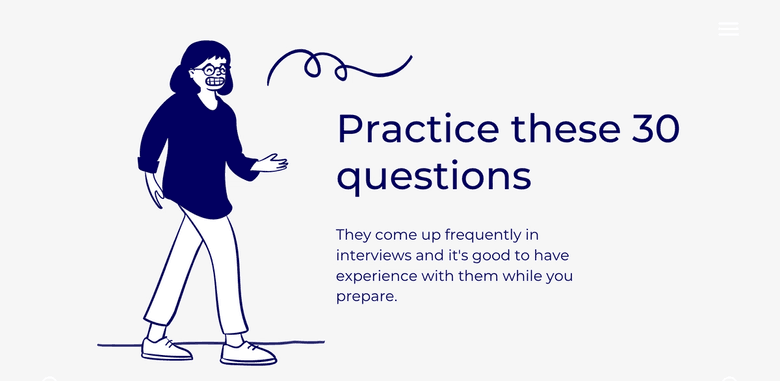Interviewing at Apple: Be prepared for anything
When it comes to tech interviews- Apple's is definitely the hardest. This is the definitive guide on what it takes to pass the interview.

If there’s one thing Apple is known for — other than its wildly popular products — it’s secrecy.
Even internally, employees on different teams don’t ask about each other’s work and some staffers report being forbidden to discuss projects with their spouse.
It’s no surprise, therefore, that Apple also keeps its hiring process hush-hush, and employees rarely speak about what it’s like to work there, even anonymously on Glassdoor.
Back in 1977 when Apple was a one-building startup, there was a sign in the lobby that reportedly read: “Loose lips sink ships.”
As the world’s second-largest tech company by market valuation, Apple has its pick of illustrious candidates. The tech giant’s ‘Join Us. Be You.’ promotional recruitment video calls on “those unfamiliar with convention, unmoved by rules and reborn with every new discovery” to join its ranks.
With an average salary of $124,000, according to PayScale, reimbursements of up to $52,000 a year for continuing education, and the chance to work with some of the brightest minds in tech, Apple’s allure as an employer is undeniable. If you're a hiring manager at Apple, your biggest problem is volume: choosing between so many talented candidates to invite for a phone interview can be brutally hard.
How long is the interview process at Apple?
Most employees say the interview process at Apple is unstructured (and unpredictable) compared to its peers Google and Microsoft, and the process varies significantly by role. In general, most Apple staffers report waiting 1-4 months between resume submission and receiving an offer, with very little feedback from recruiters in between interview rounds.
Interview process steps

1. Application
In lieu of requiring a cover letter, Apple asks motivational questions in the application for certain roles. Questions include:
- and -
Demonstrate passion for the company and its products, elaborate on how your skills and past experience make you a perfect fit for the role, and how the role fits into your career trajectory. And yes, you can still work at Apple even if you’re an avid Android user who owns a PC. However, to sign into Apple’s career portal, you’ll need an Apple ID.
2. Phone Screen (up to two)
Phone screens for corporate roles at Apple are pretty standard: an informal, 30-minute conversation with a recruiter to assess interest and team fit.
- The recruiter will brief the candidate on what to expect from the hiring process.
- The first call may be with an internal recruiter, then a team lead (like Microsoft, Apple hires for teams rather than centrally).
- Prepare to discuss past projects you’ve worked on, as well as your academic and professional achievements.
👉 Click here to see recent Apple Interview questions.
3. FaceTime Interviews (up to five)
Apple’s next round of 30-minute 1:1 interviews is designed to assess your technical and behavioral skills. Be prepared for probing questions that require a lot of introspection, such as:
One marketing manager who oversees new hires for Apple stores in the Southwest market asks this question of all prospective retail employees.
4. Apple Assessment Center (if applicable)
Some candidates report being asked to use Apple’s Assessment Center as part of the hiring process. It’s a chance to network with Apple employees and learn more about the company while completing exercises.
- Apple Group Exercise: Group exercises test your ability to work in a team. You’ll be asked to solve problems pertaining to the specific team you’re applying for (Siri, Maps, Calendar, etc.) while being observed by Apple employees. Be prepared to pitch ideas and persuade others while also asking thought-provoking questions.
- Apple Written Exercise: In a written exercise, you’ll prepare a response to an unseen case study problem. You’ll receive a candidate brief with a question/prompt.
- Apple Roleplay Exercise: Interviewing for a job at Apple retail always involves roleplaying potential scenarios with customers. The interview process for a retail job starts with a group interview where candidates are asked questions about Apple products. The group format is intentional in order to test candidates’ public speaking skills. At one point, they’re asked to stand up in front of the group and introduce the person sitting next to them. Candidates then break up into smaller groups and answer typical interview questions such as "Why do you want to work at apple?" and "Tell me about a time you didn't get along with a coworker."

5. Onsite Interviews
Unlike Microsoft and Google, Apple has not cut back on hiring during the coronavirus pandemic, save for a brief pause between March and April. It is unclear whether or not Apple has resumed onsite interviews. Apple announced in June it wanted employees back in the office and is offering COVID-19 nasal swab tests for staffers returning to work.
Onsite interviews typically consist of six hours of back-to-back interviews, typically with two people at a time.
Lunch is considered an extension of the interview, and may in fact be the most intense part of the interview process, as the candidate gets quizzed by several team members at once. While little has been publicly shared about the interview process, current and former employees report on Quora that onsite interviews tend to focus on technical questions. Software engineer candidates will be asked typical questions about algorithms and data structures and be expected to code on a laptop and whiteboard, and show an understanding of system design.
Candidates invited for an onsite interview receive a link to Apple Travel and the freedom to book a return flight and three nights accommodation at a hotel near Apple HQ.
👉 Click here to see recent Apple Interview questions.
Extra tips
Work/life balance is difficult to achieve at Apple.
Apple employees are often expected to work long hours, or even pull all-nighters to meet deadlines, so be prepared to put work first. “I've been in meetings at 4 pm where a dozen people decide we are going to all work all night that night in the office on a problem,” one Quora user writes.
“No discussion about "hey, I have to pick up my kids" or "let me call home first" -- everyone nods and agrees, no hesitation.”
Apple hires for specific teams, not centrally.
Apple corporate consists of 10 different teams, from Design to Marketing and Machine Learning & AI. You’ll need to determine upfront which team you want to join, explain why you chose that team and that particular role, and how you’re uniquely positioned to contribute to the team.
You will have to answer questions like these ones asked recently at Apple...

Whether you're a project manager, senior software engineer or even a family room specialist- everyone gets behavioral questions in their Apple interview.
Behavioral interview questions
- Tell me something you have done in your life which you are particularly proud of.
- What are your failures and how have you learned from them?
- What brings you here today?
- Do you think performance should be rewarded over experience?
- If you could have one superpower, what would it be?
- Describe a humbling experience.
- You seem pretty positive. What kinds of things bring you down?
- What was your best day in the last four years? What was your worst?
- Talk about a time where you had to make a decision in a lot of ambiguity.
- What do you want to do five years from now?
👉 Click here to see recent Apple Interview questions.
Problem-solving interview questions
- If you have two eggs and you want to figure out what's the highest floor from which you can drop the egg without breaking it, how would you do it? What's the optimal solution?
- How many children are born everyday?
- If you're given a jar with a mix of fair and unfair coins, and you pull one out and flip it three times, and get the specific sequence heads, heads, tails, what are the chances that you pulled out a fair or an unfair coin?
- You have a cup of hot coffee and a small cup of cold milk. The room temperature is in between these two. When should we add milk to the coffee to get the coolest combination -- at the beginning, middle or end?
- If you are in a boat with a boulder and you drop that boulder into the lake, how does the water level change?
- If there are 25 teams in a single elimination tournament, how many games does it take to pick a winner?
- If you had a string and wrapped tightly around the world and you wanted to lift it up 1 meter off the ground everywhere, how much would the string have to stretch?
- You are in the elevator with the CEO, and you have one minute to convince him to hire you. What would you say?
- How would you survive on a desert isle until rescue comes?
- If you were a monkey, what sort of zoo paddock would you find most disagreeable?
👉 Click here to see recent Apple Interview questions.
Technical interview questions
- How would you build the iOS home screen user interface?
- Find the most frequent element in an integer array.
- How do you use a hashmap counter?
- What does asymptotic mean?
- Why can't you use primitives in a hashmap?
- Given an iTunes type of app that pulls down lots of images that get stale over time, what strategy would you use to flush disused images over time?
- How would you design a data structure that is an array, but with so many elements such that the array almost fills up the entire RAM?
- How does ARC work in Objective C, and how is it different from garbage collection?
- Write a program that uses two threads to print the numbers from 1 to n.
- Explain to an 8-year-old what a modem/router is.
The information provided herein is for general informational purposes only and is not intended to provide tax, legal, or investment advice and should not be construed as an offer to sell, a solicitation of an offer to buy, or a recommendation of any security by Candor, its employees and affiliates, or any third-party. Any expressions of opinion or assumptions are for illustrative purposes only and are subject to change without notice. Past performance is not a guarantee of future results and the opinions presented herein should not be viewed as an indicator of future performance. Investing in securities involves risk. Loss of principal is possible.
Third-party data has been obtained from sources we believe to be reliable; however, its accuracy, completeness, or reliability cannot be guaranteed. Candor does not receive compensation to promote or discuss any particular Company; however, Candor, its employees and affiliates, and/or its clients may hold positions in securities of the Companies discussed.
